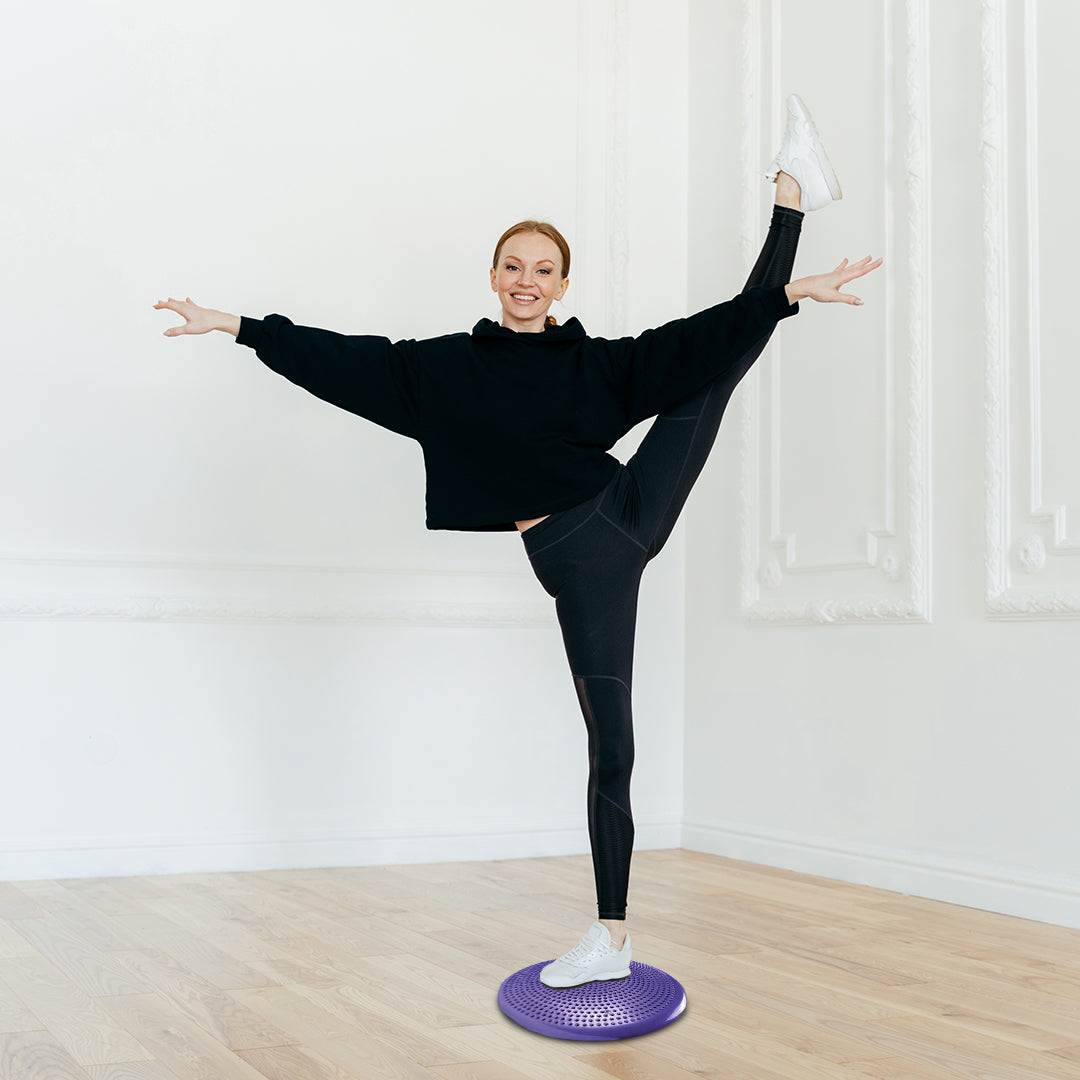Neck Stretcher: Do they work?
Introduction
Neck stretchers have become increasingly popular in recent years as a way to relieve neck pain and tension. These devices are designed to stretch and decompress the cervical spine, which can help alleviate stiffness, pain, and pressure. But do they work? In this blog post, we'll explore the science behind neck stretchers and their potential benefits.

Neck stretchers, also known as cervical traction devices, come in a variety of shapes and sizes. Some are inflatable, while others are made of foam or other materials. They typically work by providing gentle traction to the neck. Which can help to create space between the vertebrae and reduce pressure on the nerves and discs.
What is a Neck Stretcher?
Neck stretchers are devices designed to stretch the muscles and ligaments in the neck gently. They typically consist of a curved foam or plastic frame that cradles the head and supports the neck. Users lie down with their necks supported by the stretcher, and the device helps to elongate and decompress the spine.

Proponents of neck stretchers claim that they can help relieve tension headaches, improve posture, and reduce neck and shoulder pain. Some people even use neck stretchers to help alleviate symptoms of conditions like herniated discs or arthritis.
Do Neck Stretchers Work?
Before finding out if neck stretchers work or not, we need to figure out for what it is use. Everyone has different kinds of health issues. One needs to understand that neck stretchers are not any medication to cure any kind of health challenge. Some people find neck stretchers incredibly effective at relieving their pain and tension, while others may not notice much of a difference.
But One needs to be consistent in getting benefits. As these items work without side effects one needs to be patient to have long-term benefits. But obviously, there are benefits that neck stretchers ensure to have stress relief, pain relief, and tension ease.
From the users who already got relief and ease from long work stress and neck pain. It can be measur that, the benefits of using this item made them repurchase or recommend.

One thing to keep in mind is that neck stretchers should not be use as a substitute for medical treatment. If you're experiencing severe or chronic neck pain. It's important to consult with a medical professional to determine the underlying cause of your discomfort.
In some cases, neck stretchers may worsen certain conditions. So it's important to use them under the guidance of a healthcare provider.
Why Use Neck Stretchers?
That being said, if you're simply looking for a way to alleviate occasional neck stiffness or soreness, neck stretchers may be worth a try. They're relatively inexpensive and non-invasive, so there's not much harm in giving them a shot. Some people find that using a neck stretcher before bed helps them to relax and fall asleep more easily. Which can be a huge benefit for those who struggle with insomnia.
The Benefit of Using a Neck Stretcher
One of the main benefits of neck stretchers is their ability to relieve tension and pain in the neck and upper back. This can be particularly useful for people who spend long hours sitting at a desk or performing other activities that put a strain on the neck and shoulders. Neck stretchers can also help to improve the range of motion and flexibility in the neck, which can reduce the risk of future injury.
While there is some evidence to support the use of neck stretchers, the research is still limited, and more studies are need to understand their effectiveness fully. One study published in the Journal of Orthopedic Science found that the use of a neck stretcher for 10 minutes per day over 3 weeks resulted in significant improvements in neck pain and range of motion.
Another study published in the Journal of Physical Therapy Science found that the use of a neck stretcher was effective in reducing neck pain and disability in patients with cervical spondylitis.
In addition to using a neck stretcher, there are other things you can do to relieve neck pain and tension. These include:
- Maintaining Good Posture: Sitting and standing with good posture can help to reduce strain on the neck and upper back.
- Stretching and Strengthening Exercises: Regular stretching and strengthening exercises can help to improve flexibility and reduce the risk of future injury.
- Taking Breaks: Taking frequent breaks from sitting or repetitive activities can help to reduce strain on the neck and upper back.
- Using Heat or Ice: Applying heat or ice to the neck can help to reduce pain and inflammation.
Should You Invest in a Neck Stretcher?
Ultimately, the decision is up to you. If you're dealing with occasional neck pain or stiffness and want to try a non-invasive, affordable treatment option, a neck stretcher may be worth a shot. However, if you're experiencing more serious or chronic neck pain. It's important to consult with a medical professional before trying any new treatments.
Conclusion
In conclusion, neck stretchers can be a helpful tool for relieving neck tension and discomfort. While they may not work for everyone, they're a relatively low-risk treatment option that's worth considering if you're dealing with occasional neck pain or stiffness.
If you're interested in trying out a neck stretcher for yourself, there are many different brands and models available online or at your local health store. Just be sure to use the device safely and under the guidance of a healthcare professional if you have any pre-existing conditions.





